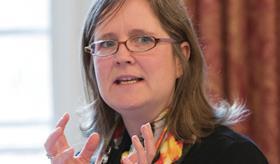Funding the integration of health and social care through councils going “cap in hand” to the NHS cannot be right, according to the new president of the Association of Directors of Adult Social Services.
In his first speech as president to the Adass spring seminar this week, Harold Bodmer criticised the better care fund system under which clinical commissioning groups must pool a minimum amount of their budget with local government, HSJ sister title Local Government Chronicle reports. The minimum is set by NHS England but CCGs can choose to pool more.

Mr Bodmer, who is also director of community services at Norfolk County Council, said: “Many of us are still negotiating this year’s BCF with NHS partners who also face unprecedented pressure, particularly around provider deficits.
“I have made no secret of my dislike for the BCF, although of course it has produced innovation in a number of places. I just can’t see how it can be right that social care is funded in this way, dependent on directors [of adult social care] negotiating with CCGs, or some may see it [as] going cap in hand.
“What we really need, in my view, is to move from the BCF into a much more sustainable whole system health and social care funding regime where we really agree priorities and risk together.”
The conference also heard calls for councils to have greater influence over local NHS budgets in a bid to drive integration of services, and concerns that the development of 44 “sustainability and transformation” plan footprints could see existing collaborative arrangements between CCGs and councils dismantled.
Andrew Webster, public sector and health director at auditors KPMG, suggested councils should have a central role in determining NHS finances locally.
He said it was difficult to get a clear understanding of who is responsible for the money in the NHS, with deficits “miraculously” moving between CCGs and providers.
“One simple way of getting integration would be to say that the budgets could not be signed off unless the council agreed,” he added.
The comment was described as a “small incendiary” by session chair David Brindle from The Guardian and met with amusement by some delegates.
However, David Pearson, director of adult social care at Nottinghamshire County Council and leader of the county’s STP, did not rule out pushing for councils to play a role in NHS budget setting.
He said: “We should go with a set of principles of what we expect out of the STP and say this is how we are going to do this – it might include [hospital] budgets are signed off [by councils]. Unless we are clear about what our objectives are we will always be buffeted by the wind.”
NHS England has ordered all 44 STP areas to draw up plans by June.
Samih Kalakeche, director of adult social care at Liverpool City Council, said integration taking place across the city could be undermined by the move to establish the STP, which includes all of Cheshire and Merseyside.
He said: “The only way we can do something is with a single management structure. The STP does not fit with devolution. The city region footprint must be the same as the STP otherwise it does not work.”
Saffron Cordery, NHS Providers’ director of policy and strategy, said she did not believe putting STPs under a single management structure would work due to the failings of past re-organisations, but added there was “a lot in” the suggestion that councils could influence NHS budgets locally.



























2 Readers' comments